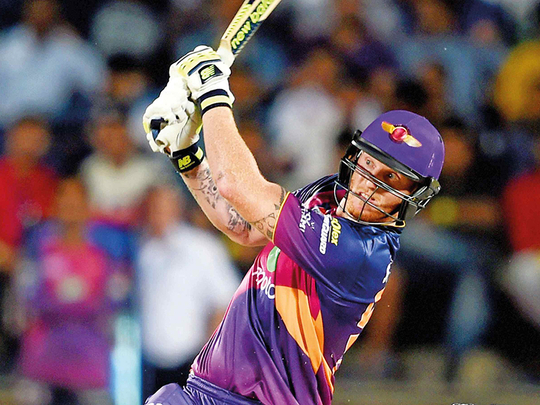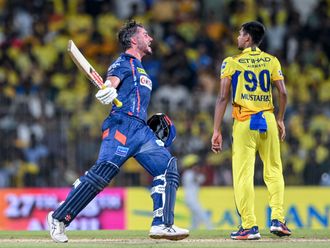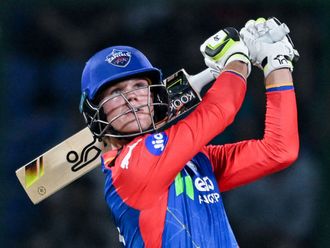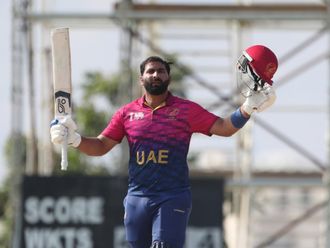
Dubai: From being the champions with a young team of the first edition to being banned for two years on alleged charges of corruption, it has been an eventful journey for Rajasthan Royals through the first decade of Indian Premier League (IPL). However, as the league turns a new leaf with promises of getting even richer, Royals have ensured that they make a befitting comeback by being one of the biggest spenders in the mega auction last week.
They pulled out on all stops to rope in Ben Stokes, the inspirational England all-rounder, in what was the biggest deal of the auction at $1.96 million dollars as well as Indian pacer Jaydev Unadkat — who ended up being the most expensive buy among the bowlers.
The team management, however, showed their faith in a sense of continuity by retaining Steve Smith as captain and winning back a few of the core Royals like Indian vice-captain Ajinkya Rahane, Sanju Samson and Stuart Binny.
“It has been a roller-coaster ride for us, with highs and lows,” admitted Manoj Badale, co-owner of the Royals in an exclusive interview with Gulf News. “We have made a unique contribution to the league, on occasion being treated unfairly but also on occasion made some poor judgements,” he said with candour, before adding that the goal will now be to reclaim the championship.
Following are the excerpts of a wide-ranging interview:
Rajasthan Royals have dominated the auction for IPL in their comeback season by pulling out on all stops on Stokes. What was your strategy regarding the all-rounder as he was one of the most effective ‘impact players’ for the now defunct Pune Supergiant last year?
Our strategy has simply been to focus on building a balanced side. Our buys at the auctions are not just for a season, but we have kept in mind the future development of the franchise.
We think Stokes is a unique talent and creates a great balance to our side. He has always felt like a ‘Royal’ — competitive, aggressive and with a never-say-die attitude, which have been the hallmark of the Royals.
The pursuit of Unadkat did raise a few eyebrows — how do you justify the spend behind him? Do you think him and Dhawal Kulkarni will combine to become a perfect fit with the new ball?
The spend is not just a function of what we think a player is worth, but also a function of what others think. He was a key target for us, given his ability in the death overs. Dhawal is a long term Royal player, and we all know how dangerous he can be with the new ball. It is a strong attack, on a Jaipur wicket, which is likely to help them both.
You have also tried to maintain a sense of continuity by naming Smith as captain and going for Rahane and Samson. How does it confirm to the ‘team first’ culture of Royals?
It is an important decision as we need collective leadership team for a seven-week tournament Hence, acquiring players like Rahane, Samson, Binny and Steve who very well understand the value and vision of the Royals is important. We have a very strong set of values as a franchise, so these long standing Royals — along with Zubin Bharucha as the Head of Cricket ensure important continuity.
The IPL seems to be turning a new leaf this year — from signing a mega deal with Star India for media rights to the new revenue sharing model — which is supposed to be a win-win situation for the franchises. How do you react to this?
The IPL clearly has momentum, but with increased scale comes increased responsibility. With Star’s commitment to reach 750 million plus households this season, it is an affirmation to the ever-growing popularity of the tournament. The franchises are more profitable, but it is important that we invest in the future of the game and also ensure that we contribute to the country’s overall development.
In a recent chat with Gulf News, the IPL chairman told me that under the new revenue model, the eight franchises will be sharing 60 per cent of the revenues and you don’t have to pay the license fees. Does it mean a guaranteed revenue stream which can make the lives of franchise owners any easier?
Under the new revenue model, the eight franchises will be sharing 50 per cent of the revenues and the license fee is payable at 20 per cent of the total revenue made by the franchise. It is certainly a simpler model, especially from a cash flow perspective.
As the IPL moves to it’s second decade, how you look back at the journey — both from Royals as well as the overall perspective?
The IPL has achieved some great milestones in the past 10 years. The league has advanced steadily and the fan base for cricket has been expanded, which is great. It’s the most valuable cricketing league in the world, thanks to the intensive marketing initiatives and investments — made both by the league and the franchises.
However, there is always scope for innovation, and I would argue that we need to increase the pace of innovation — and set ourselves big new targets — especially with respect to growing the game internationally.
From a Royals’ perspective, it has been a rollercoaster, with both highs and lows. We have made a unique contribution to the league, on occasion been treated unfairly, but also on occasion made some poor judgements. We have to challenge ourselves to improve and reclaim the title, and most importantly, continue to innovate. We have great fans all over the world, and to them we have a massive responsibility.
Another heartening aspect this time is you are getting back Jaipur as the ‘home’ venue. How will it help in your campaign?
It’s great to be playing at our home — which we affectionately refer to as the Fort! Cricket fans in Rajasthan have been deprived of cricket in recent times, and we have to make them proud again.











